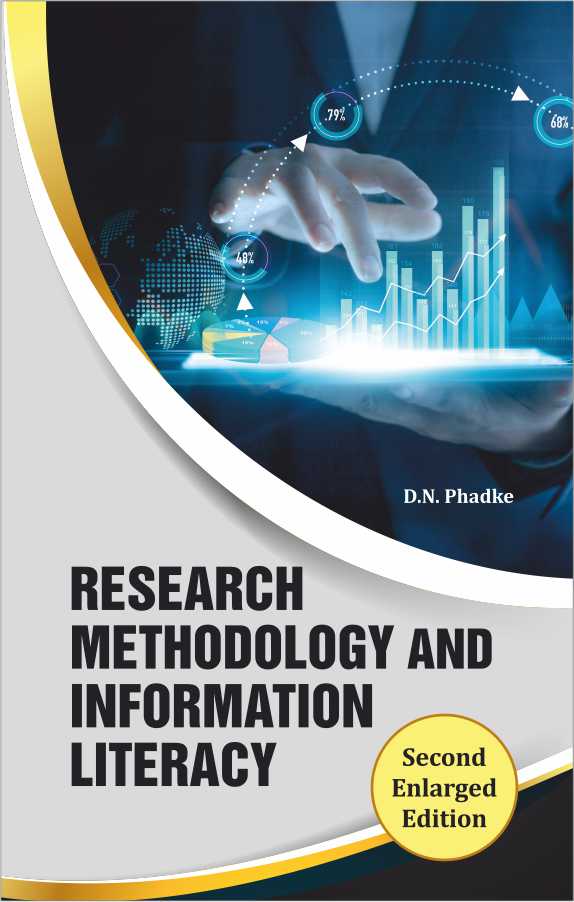The book Research Methodology and Information Literacy (ACRL Standards) , in its  second enlarged edition primarily deals with interdisciplinary topics such as Research Methodology and Information literacy. This book is very important in developing countries like India as information literacy skills are almost absent in our undergraduate and post graduate education system and this is what this aspires to address. Having good experience of teaching ACRL Information Literacy Standards and with association of research community the author has always felt the need for linking research skills with that of information literacy (ACRL standards) competencies with view to provide an important point of view to researchers and help them in making research work truly interesting while not compromising on its quality .This book intends to provide an invisible guide to the researchers, which will ultimately help them in producing quality research output.
The book initially deals with research methodology process and then goes on to introduce information literacy subsequently  explaining how to apply information literacy competencies in research process. The book goes on to link information literacy competencies with that of research skills and finally provides a draft information literacy programme for Ph.D. entrance examinations and research course works in Indian universities. It is hoped that this book would a great value addition to the literature available on this topic.
In its Second Edition, the book takes into account the fast development in the field of Artificial Intelligence (AI). Today quite a good number of Artificial Intelligence (AI) tools have emerged, which are being used in various fields for bringing in automation and convenience. The book discusses a good number of AI tools which could be used in the area of research methodology. A chapter has been written around this theme titled Use of Artificial Intelligence in Research Methodology  where introduction to artificial intelligence and applications of various artificial intelligence tools in the field of research have been discussed in detail. The book introduces nearly 14 AI tools applicable in the research such as google scholar; Trinka; Elicit; Scolarcy, Chat(GPT ) and the recently launched Gemini AI tool by the Google and many more such tools. It is hoped that the future researchers will understand effectiveness of using AI tools in research towards bringing more accuracy and quality in their research output.
Research Methodology and Information Literacy (Second Enlarged Edition)
Author:
Dattatray N. Phadke
Rs. 1750
Additional information
| ISBN | 9789392594786 |
|---|---|
| Year of Publication | 2024 |
| Binding | Hardbound |
| Pages | 354 |
| Edition | 2nd |
| Language | English |


